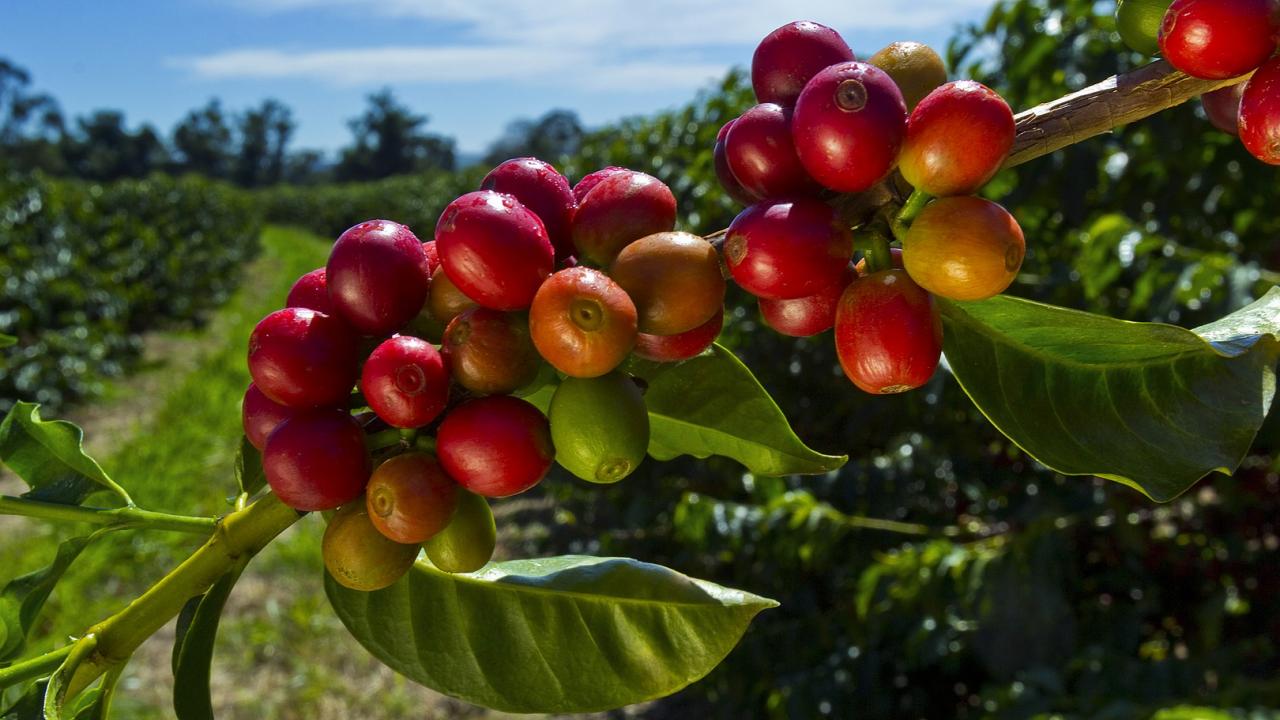
Arabica coffee genome sequenced
By Pat Bailey
Coincides with the birth of the California-grown specialty coffee industry
The first public genome sequence for Coffea arabica, the species responsible for more than 70 percent of global coffee production, was released today by researchers at the University of California, Davis.
Funding for the sequencing was provided by Suntory group, an international food and beverage company based in Tokyo.
Now available for immediate use by scientists and plant breeders around the world, the new genome sequence has been posted to Phytozome.net, the public database for comparative plant genomics coordinated by the U.S. Department of Energy’s Joint Genome Institute.
Details of the sequence will be presented Sunday, Jan. 15, at the Plant and Animal Genome Conference in San Diego.
Sequencing of the C. arabica genome is particularly meaningful for California, where coffee plants are being grown commercially for the first time in the continental United States and a specialty-coffee industry is emerging.
“This new genome sequence for Coffea arabica contains information crucial for developing high-quality, disease-resistant coffee varieties that can adapt to the climate changes that are expected to threaten global coffee production in the next 30 years,” said Juan Medrano, a geneticist in the UC Davis College of Agricultural and Environmental Sciences and co-researcher on the sequencing effort.
“We hope that the C. arabica sequence will eventually benefit everyone involved with coffee — from coffee farmers, whose livelihoods are threatened by devastating diseases like coffee leaf rust, to coffee processors and consumers around the world,” he said.
The sequencing was conducted through a collaboration between Medrano, plant scientists Allen Van Deynze and Dario Cantu, and postdoctoral research scholar Amanda Hulse-Kemp, all from UC Davis.
Please see here for the full press release, and here for details on the coffee genome.